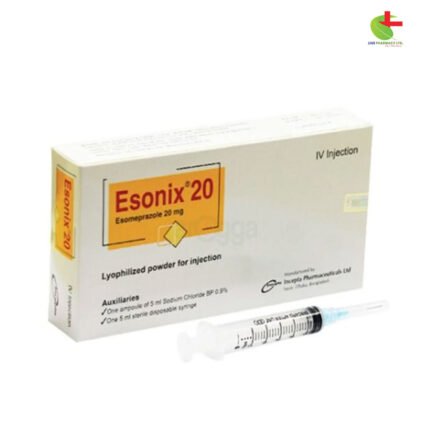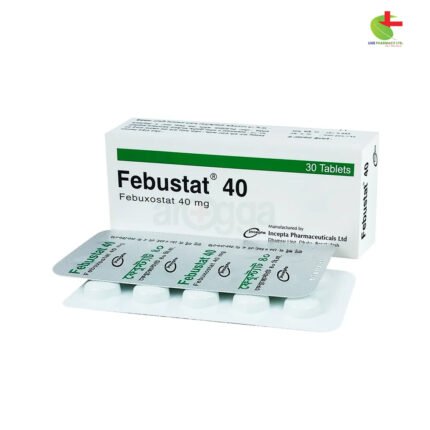Evimar 13
4,000.00৳ Syringe(0.5ml)
- Indications: Active immunization against pneumococcal disease for children aged 2 years and older, adolescents, and adults.
- Dosage: A single 0.5 mL dose via intramuscular or subcutaneous injection.
- Contraindications: Not for individuals with allergic reactions to vaccine components, acute infections, or uncontrolled epilepsy.
- Side Effects: Common reactions include injection-site pain (60%), headache (17.6%), and fatigue (13.2%).
- Storage: Refrigerate at 2° to 8°C, protecting from light.
 Brand
Brand
|
Incepta Pharmaceuticals Ltd |
|---|---|
 Generics
Generics
|
Polysaccharide Pneumococcal Vaccine |
 Type
Type
|
IM Injection |
Indications
The 0.5 mL dosage of this vaccine contains 25 micrograms of each of the 23 pneumococcal polysaccharide serotypes: 1, 2, 3, 4, 5, 6B, 7F, 8, 9N, 9V, 10A, 11A, 12F, 14, 15B, 17F, 18C, 19F, 19A, 20, 22F, 23F, and 33F. This vaccine is recommended for the active immunization of children aged 2 years and older, as well as adolescents and adults, against pneumococcal disease. Consult a registered healthcare professional before taking this medication.
Pharmacology
This vaccine is formulated using purified pneumococcal capsular polysaccharide antigens from the 23 serotypes responsible for approximately 90% of invasive pneumococcal disease cases. The included serotypes are: 1, 2, 3, 4, 5, 6B, 7F, 8, 9N, 9V, 10A, 11A, 12F, 14, 15B, 17F, 18C, 19F, 19A, 20, 22F, 23F, and 33F.
Dosage & Administration
Primary Vaccination:
- Adults and Children (2 years and older): Administer a single dose of 0.5 mL via intramuscular or subcutaneous injection. This vaccine is not recommended for children under 2 years, as its safety and efficacy in this age group are not established, and the antibody response may be inadequate.
Special Dosing Considerations:
- Elective Splenectomy/Chemotherapy: It is advisable to administer the pneumococcal vaccine at least two weeks before elective splenectomy or the start of chemotherapy or immunosuppressive treatments. Vaccination during such treatments should be avoided.
- Post-Treatment: Following chemotherapy or radiation therapy for neoplastic disease, the immune response may remain weakened. It is recommended to wait at least three months after completing such treatments before administering the vaccine. Longer delays may be appropriate for patients undergoing intensive or prolonged therapy.
- HIV Patients: Individuals with confirmed asymptomatic or symptomatic HIV infection should receive the vaccine as soon as possible after diagnosis.
Revaccination:
- Administer one single dose of 0.5 mL via intramuscular or subcutaneous injection. The timing and necessity of revaccination should follow official recommendations. Revaccination within three years is not recommended due to an increased risk of adverse reactions, particularly local and some systemic reactions in individuals aged 65 and older.
Adults: Routine revaccination is not necessary for healthy adults. However, those at increased risk of serious pneumococcal infections who received the vaccine more than five years prior or those experiencing rapid declines in antibody levels may benefit from revaccination. For high-risk groups, such as asplenic patients, revaccination every three years may be considered.
Children: Routine revaccination is not recommended for healthy children. For children aged 10 years and older, revaccination may be considered based on adult guidelines. For children aged 2 to 10 years, revaccination may only be considered after three years if they are at high risk for pneumococcal infection (e.g., those with nephrotic syndrome, asplenia, or sickle cell disease). Consult a registered healthcare professional before taking this medication.
Interaction
The pneumococcal vaccine can be given simultaneously with the influenza vaccine, provided that different needles and injection sites are used.
Contraindications
This vaccine should not be administered to individuals who:
- Have allergic reactions to any vaccine components.
- Are experiencing fever, acute infections, or chronic diseases in their acute stage.
- Have uncontrolled epilepsy or other progressive neurological disorders.
- Should not be revaccinated within three years unless absolutely necessary.
Side Effects
The most commonly reported adverse reactions (occurring in over 10% of recipients) during clinical trials for first-time vaccination with the pneumococcal vaccine include: injection-site pain, soreness, or tenderness (60.0%), injection-site swelling (20.3%), headache (17.6%), injection-site redness (16.4%), fatigue (13.2%), and muscle pain (11.9%).
Pregnancy & Lactation
Animal studies regarding reproductive toxicity are insufficient. This vaccine should only be used during pregnancy if clearly necessary, where the potential benefits outweigh the risks to the fetus. It is unknown whether the vaccine is excreted in human breast milk, so caution is advised when administering it to nursing mothers. The vaccine’s effects on fertility have not been evaluated.
Precautions & Warnings
Vaccination should be postponed during significant febrile illnesses, active infections, or when systemic reactions pose a considerable risk, unless delaying could lead to greater risks. The vaccine must never be administered intravascularly, and care should be taken to avoid injecting into blood vessels. Intradermal injections are also not recommended due to an increased risk of local reactions. Patients who are immunosuppressed may not achieve the expected serum antibody response after vaccination, making them less protected against pneumococcal disease compared to immunocompetent individuals. While the vaccine may not provide complete protection, improvements in antibody response may be observed within two years after the conclusion of chemotherapy or other immunosuppressive therapies, especially as the time since treatment increases.
Adequate emergency measures, including epinephrine (adrenaline), should be available to manage potential acute anaphylactic reactions. Prophylactic antibiotic therapy against pneumococcal infections should not be discontinued after vaccination. Patients at elevated risk of severe pneumococcal infection (e.g., asplenic individuals or those undergoing immunosuppressive therapy) should be informed about the potential need for early antimicrobial treatment if they develop a severe, sudden febrile illness. The pneumococcal vaccine may not be effective in preventing infections associated with basilar skull fractures or external communications with cerebrospinal fluid.
Therapeutic Class
Vaccines, Anti-sera & Immunoglobulins
Storage Conditions
Store in a refrigerator at temperatures between 2° to 8°C, protecting vials from light.













Reviews
There are no reviews yet.